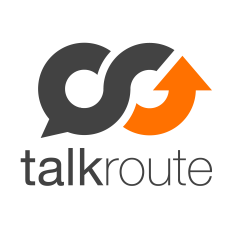Last Updated on April 14, 2025 by Ewen Finser
Both Dialpad and RingCentral are two of the most popular business VOIP solutions on the market today.
They offer a wide array of business phone features, including voice calling, team messaging, and video conferencing.
However, they also have different features that can make one or the other more suitable for your organization’s needs.
I’ll delve into how these two platforms compare in terms of features, pricing, and usability.
Key Differences Between DialPad and RingCentral
I happen to like Talkroute as the better fit for small businesses. I don't need extra telephony equipment and it's easy to setup (compared to many VOIP services). It's also perfect if your internet service is uneven OR can't handle a full-on VOIP install. It's also cheaper than most peers I looked it.
Similarities Between DialPad and RingCentral
Unified Communication
Both platforms offer unified apps that users can use for activities like voice calling, video conferencing, file sharing, and team messaging.
API Integration
Both platforms offer an API (Application Programming Interface) and SDKs (Software Development Kits) to help developers create custom workflows and integrate third-party tools with the platform.
Mobile Apps
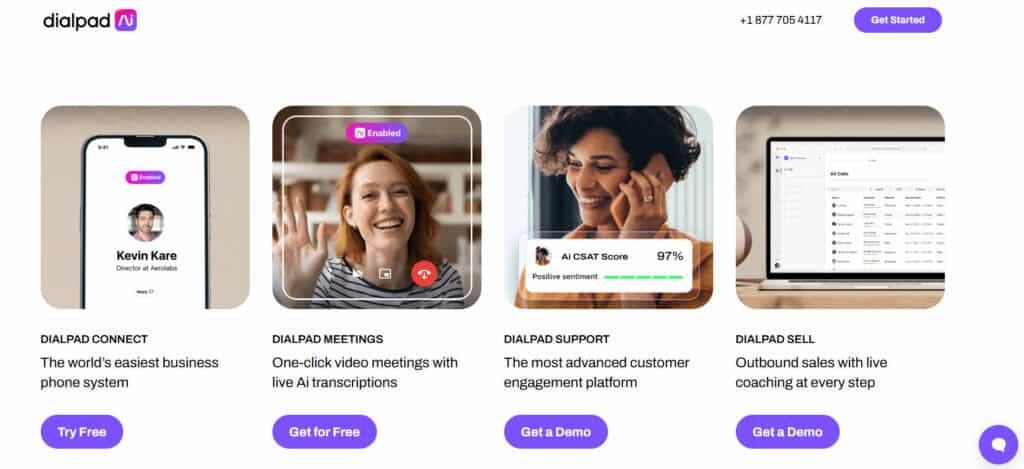
Both DialPad and RingCentral offer both iOS and Android apps allowing team members to manage calls from mobile devices, no matter their location.
Scalability
Businesses of all sizes can benefit from the various pricing tiers of both DialPad and RingCentral. In both cases, I’ve found that the different services and range of pricing plans can also be a little overwhelming at first!
Free Trials
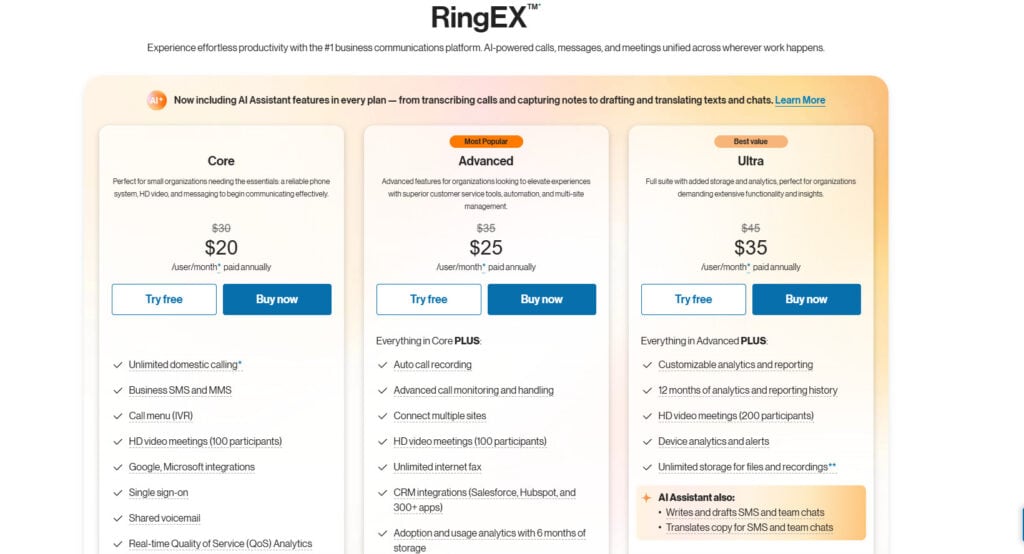
Both platforms offer a free trial. In the case of DialPad, users can try out features for 14 days. RingCentral also offers a free trial, with support for up to twenty phone lines.
Find some RingCentral alternatives here!
What is Dialpad?
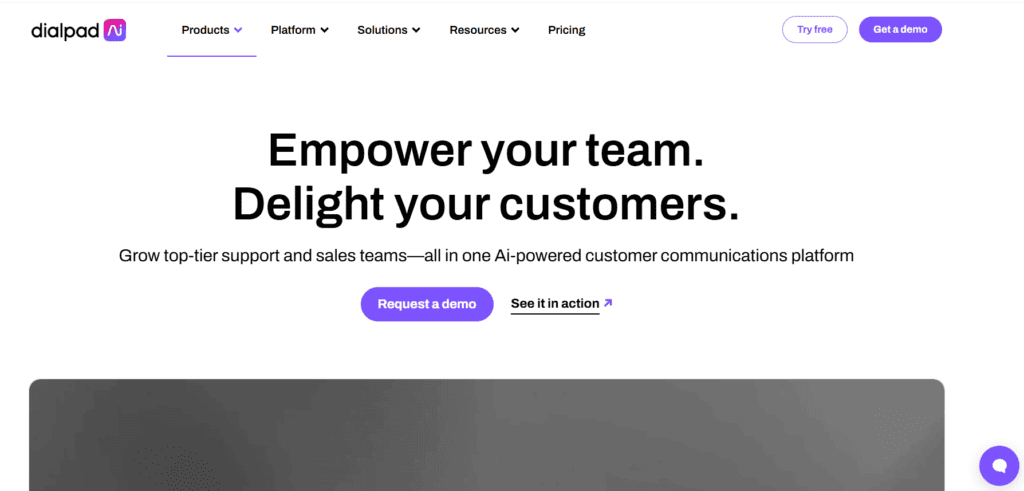
This business VOIP platform is well-known for its AI-powered features that make it much easier to handle large call volumes and improve customer interactions. Key Dialpad features include:
AI-Powered Analytics
This covers KPIs (key performance indicators) like call volume, duration, and missed calls. It also can create customized reports summarizing data like call metrics by group and date.
Call Routing
DialPad offers advanced options to route calls, such as fixed order or by idle time. The platform even supports skill-based routing, so calls are directed to team members with the right knowledge to help with their queries.
Minimal hardware costs
As Dialpad is cloud-based, there’s no need to buy extra telephony equipment to start using the platform. Users can also import their existing business numbers to DialPad.
What is RingCentral?
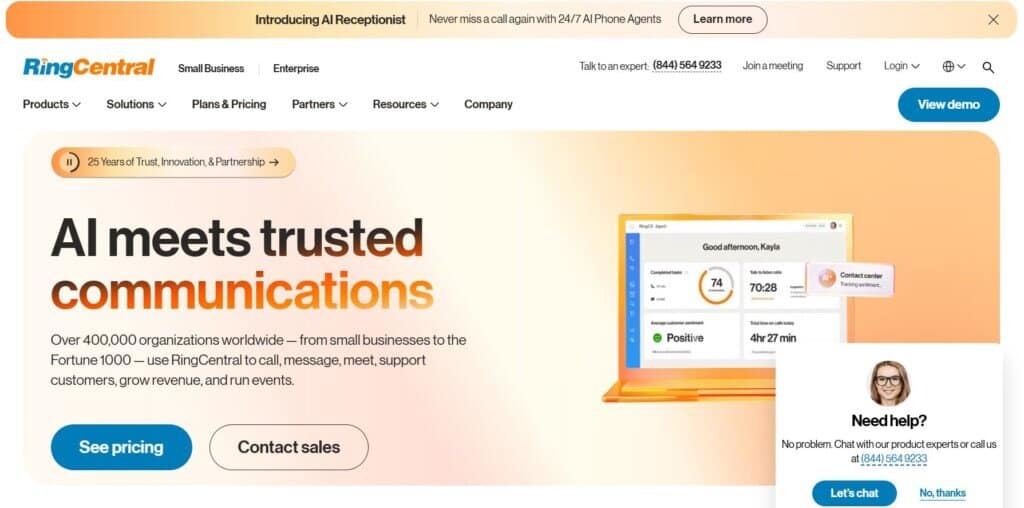
RingCentral is an advanced unified communications platform with a huge number of business call management features. This makes it ideal for larger organizations. Key RingCentral features include:
Multi-Level IVR
After the automated greeting, callers can be directed to any number of menu stages. They can even use voice options, e.g. to state the number of hours they want to park their car before being moved on to an automated payment system. This reduces customer wait time.
Video Conferencing
RingCentral’s free ‘Video Pro’ plan supports 50-minute meetings for 100 participants. This includes whiteboard content sharing as well as AI-powered meeting insights and transcriptions. Upgrade to a Video Pro+ plan for $10 per user/month for 24-hour meetings with up to 200 participants.
Extensive Integrations
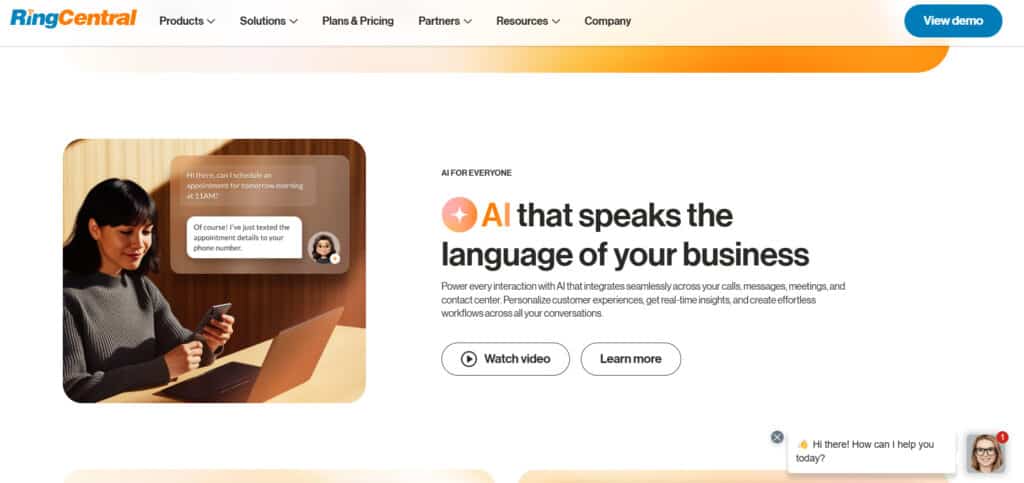
Another perk of the above-mentioned ‘Video Pro+’ subscription is access to Developer APIs for custom integrations. RingCentral also supports over 400 CRM tools and business apps out of the box, including Salesforce, HubSpot, and Zendesk.
Dialpad vs RingCentral: Pricing
Both platforms offer discounts for annual billing, though the prices I’ve listed here assume that users are paying on a monthly basis. While Dialpad and RingCentral offer advanced features, RingCentral’s top pricing plans are more advanced:
Plan | Dialpad (Monthly) | RingCentral (Monthly) |
Basic/Starter | $27/user | $30/user |
Mid-tier/Standard | $35/user | $35/user |
Premium/Professional | On request | $45/user |
Dialpad vs RingCentral: Pros and Cons

Dialpad Pros
- Affordable Pricing: Compared to RingCentral, Dialpad’s lowest ‘Standard’ plan is less expensive, though it provides similar features. This difference is more marked if you pay annually, which works out to $15 per month compared to $20 per month for RingCentral’s ‘Core’ tier.
- Easy Google/Microsoft Integration: ‘Standard’ Dialpad subscribers can start using Google Workspace and Microsoft 365 apps out of the box. These may be all an SME needs.
Dialpad Cons
- Limited toll-free calling: All Dialpad business plans support toll-free numbers, but you need to pay an extra $17 per month. Sending SMS messages to toll-free numbers also isn’t supported.
- Smaller video calling capacity: As you’ll have seen from the table above, both Dialpad’s free and paid plans support fewer meeting participants than RingCentral. Even for ‘Business’ premium plans, meetings are limited to 5 hours, whereas RingCentral’s Video Pro+ plan allows meetings of any duration.
RingCentral Pros
- Toll-free Numbers included: When you sign up for a RingCentral account, you can choose a virtual number, including a toll-free one, at no extra cost.
- Team collaboration: Tools like RingCentral video make managing teams easy, as it supports features like file sharing and task management. You can also share large files using RingCentral’s cloud storage.
- Advanced video conferencing: RingCentral’s Video Pro+ plan supports unlimited meetings for up to 200 participants. It also includes features like end-to-end encryption and CRM/business app integrations.
RingCentral Cons
- Higher pricing: Relative to Dialpad, RingCentral’s entry-level plan is more expensive. You may gain value for money with more expensive plans because of the more advanced features on offer.
- Limited fax support: Though this may not be a dealbreaker for most modern businesses, RingCentral’s basic ‘Core’ plan doesn’t support faxing. Internet faxing is available for ‘Advanced’ and ‘Ultra’ subscribers.
Dialpad vs RingCentral: Alternatives
As dazzling as both these platforms are in terms of advanced AI-powered features, etc., they can be overkill for small organizations that just need a basic business VOIP solution.

Alternatives like Talkroute support essential features like unlimited domestic calling, business SMS, and call routing at very competitive rates. Its ‘Basic’ plan (one number and mailbox) costs just $19 per month. Additional users cost just $5 each.
If you don’t need advanced features like multi-stage IVR but do need a reliable business phone system with essentials like unlimited SMS, consider signing up for Grasshopper. Subscriptions start at $14 per month, assuming you pay annually.
If you need to unify communications simply from a single interface, give Vonage a try. Its software integrates voice, video, and messaging, plus subscriptions start at $13.99 per month per line.
You might also be interested in: Talkroute vs Grasshopper: Which is better?
I happen to like Talkroute as the better fit for small businesses. I don't need extra telephony equipment and it's easy to setup (compared to many VOIP services). It's also perfect if your internet service is uneven OR can't handle a full-on VOIP install. It's also cheaper than most peers I looked it.
Which Platform Should You Choose?
Your chosen business phone solution depends entirely on your company’s needs. I’d recommend Dialpad if you need advanced AI features like real-time analytics and customer sentiment analysis. RingCentral might be a better choice if you need full support for toll-free numbers and integration with CRM tools. It also has excellent video conferencing features.
And if you have a small business and prize simplicity over huge numbers of features, Talkroute offers reliable call routing, text messaging, and voicemail transcription.


